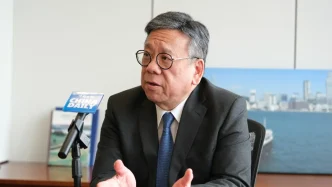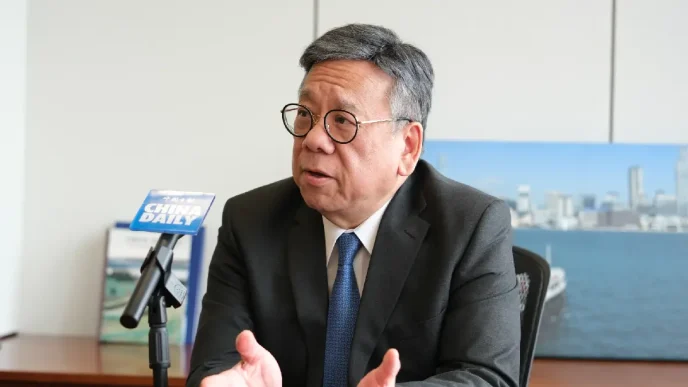A groundbreaking advancement in medical technology at Singapore’s Alexandra Hospital is poised to revolutionise total knee replacement surgeries, slashing operation times by nearly half through the use of an artificial intelligence (AI)-powered algorithm. This innovation, developed by a team of local medical professionals, promises not only greater precision in implant positioning but also improved patient outcomes, potentially setting a new global standard for robotic-assisted surgeries.
The AI algorithm, integrated into robotic software, calculates thousands of permutations to determine the optimal placement of knee implants in under a tenth of a second, a process that traditionally takes surgeons around 15 minutes of manual planning during surgery. A recent study conducted between November 2021 and December 2023 revealed striking results: 92% of operations using the algorithm achieved implant accuracy within 1.5mm, compared to just 52% of those performed without it. Furthermore, planning time during procedures was reduced to about one minute, compared to over 14 minutes conventionally, resulting in overall surgery times dropping from more than 73 minutes to approximately 38 minutes.
Dr Glen Liau, a consultant with Alexandra Hospital’s orthopaedic surgery department and the lead developer of the algorithm, described the innovation as a potential “game changer” for robotic total knee replacement surgeries. “Results from our study show that this could impact the accuracy and efficiency of all such operations in the future,” he told media on 10 February 2025. He also highlighted additional benefits for patients, including a reduced risk of infection and less time under anaesthesia due to shorter surgeries.
A Personal Triumph for Patients
For individuals like Mr Wong Chee Meng, a 73-year-old retired ship repairman, the impact of this technology has been life-changing. Mr Wong underwent surgery on his right knee in November 2023 using the AI-powered algorithm. Just four months later, he was able to trek up mountains during a holiday in China’s Guizhou province. “After four months, I was fully recovered,” he shared, expressing his newfound mobility and freedom from pain. He is scheduled for a similar procedure on his left knee in January 2026.
Similarly, Ms Rita Sarswathi, a 73-year-old housewife who had battled knee pain for three years, underwent surgeries on both knees in 2024 using the technology. She reported being able to walk faster and for longer durations with “no pain at all,” a testament to the improved alignment and reduced complications noted in patients treated with the algorithm.
Since August 2023, approximately 200 patients have benefited from this innovation at Alexandra Hospital, with many reporting higher satisfaction rates due to better surgical outcomes. Total knee replacement is among the most common procedures in Singapore, with around 6,000 cases performed annually, underscoring the potential scale of impact this technology could have locally and beyond.
The Science Behind the Innovation
The challenge of total knee replacement lies in the unique bone and ligament structures of each patient, making the precise positioning of implants for the femur (thighbone) and tibia (shinbone) a complex and critical task. Traditionally, surgeons manually adjust implant positioning during the operation, a process constrained by time and limited by the inability to explore multiple solutions. Current imaging techniques, such as X-rays and MRI scans, also fall short in providing detailed insights into a patient’s full range of knee movement prior to surgery, as Dr Liau explained.
To address these limitations, Dr Liau collaborated with Dr Matthew Ng, now a house officer at Singapore General Hospital, and Mr Ryan Loke, a final-year medical student, to develop the algorithm. Drawing on their coding and programming expertise, the trio created the tool in just one week. Capable of achieving accuracy to within 0.5mm, the algorithm represents a significant leap forward in surgical precision.
The prospective study of 67 patients, of whom 25 underwent surgery with the algorithm, provided concrete evidence of its efficacy. Beyond the dramatic reduction in surgery and planning times, the technology’s ability to enhance accuracy could lead to fewer post-operative complications and faster recovery periods, as evidenced by patient testimonials.
Looking to the Future
The team behind this innovation is not resting on its laurels. In October 2023, they filed a patent in Singapore, followed by an international Patent Cooperation Treaty in August 2024, securing proprietary rights in 150 countries. The project has already garnered international recognition, having been presented at the International Society for Technology in Arthroplasty congress in the US in 2024. Closer to home, it received the P Balasubramaniam Young Orthopaedic Investigator’s Award in Singapore that same year.
Currently, Dr Liau and his team are in discussions with various companies to commercialise the technology, a move that could see the algorithm adopted in hospitals worldwide. Further studies are also underway to explore additional benefits and long-term effects of the technology on patient outcomes.
While the immediate impact is felt by patients in Singapore, the broader implications of this AI-powered tool could reshape orthopaedic surgery on a global scale. As robotic-assisted procedures become increasingly common, innovations like this highlight the transformative potential of AI in healthcare, offering hope to millions who undergo knee replacement surgeries each year.
For now, patients like Mr Wong and Ms Sarswathi are living proof of the technology’s promise—walking taller, moving faster, and reclaiming their lives one step at a time.














